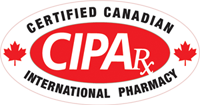Pharmacist's Corner
5 ways to avoid harmful interactions
when taking multiple medications
Many people - especially as they age - find themselves taking multiple medications each day. If you take several different prescriptions daily, see multiple doctors, or have certain health conditions, you and your doctors need to be aware of all the medicines you take. This will help avoid potential problems such as adverse drug interactions, which can seriously impact your health.
When you take multiple medications, they can interact with each other inside your body. Drug interactions may make your prescriptions less effective, cause unexpected side effects, or even make one drug too powerful. Pharmacists and doctors are well trained to review and recognize potential drug interactions, so always discuss all the medications you take with your health care provider or pharmacist.
Here are a few additional tips to help you avoid harmful drug interactions:
Ask questions about your medications, especially new ones. Make it a habit to ask your doctor or pharmacist questions such as "Should I expect any side effects from this medication?" and "Will this medication interact with my other current medications, as well as the foods I eat and any supplements (vitamins) I take?" Be sure you are clear on exactly when and how much of each medication you are to take, what it is designed to treat, and what you should do it you experience any unusual effects.
Keep a list of all your medications. It can be hard to remember all the medications and dosages you take on a daily basis. For this reason, it's a good idea to keep a written list of your prescriptions and share it with your doctor at every appointment you have. This keeps the doctor informed of prescriptions you might also be taking from a different doctor (such as a specialist you also see). You can also ask the doctor to review this list annually, to see if any adjustments to your overall medication routine should be changed.
Educate yourself. Pharmacists, such as those of us who work at Canadian pharmacies that are licensed CIPA members, will always be willing to discuss your medications and answer questions. But it's also important to educate yourself about the medications you take. How do you do this? First and foremost, carefully read the labels of everything you take - both prescriptions and over-the-counter medications. Pay close attention to special alerts on your prescription bottle, which might warn you against taking a medication with alcohol, antacids, or certain beverages such as grapefruit juice. You can also make use of online services that offer drug information and interaction alerts, such as Medscape and Drugs.com. But remember that these sites provide general information for a wide audience, and if you have questions about anything you read online about your own medications, you should consult your doctor or pharmacist.
Try to avoid using multiple pharmacies. If you can order all your medications from a single pharmacy, it will help the pharmacist and their computer system track your medications and screen for potential interactions. However, if this is not possible, then be sure that each pharmacy you use has a complete and up-to-date list of all your medications, so they can check any new prescriptions or refills against what you're already taking.
Finally, to avoid harmful interactions, make sure to always take your medications exactly as directed. And never take a friend or family member's medication, even if you have a similar condition. To be safe, only take medications that have been prescribed specifically for you.

